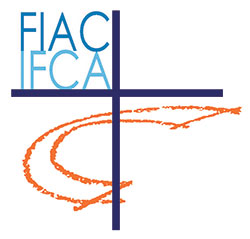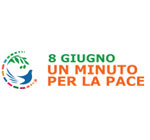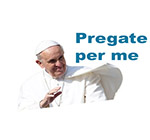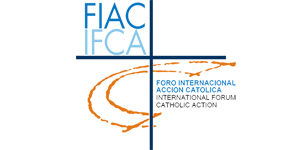Speech of Halina Szydelko KIAK President at the conference opening
DISPONIBILE SOLO IN INGLESE
DISPONIBILE SOLO IN INGLESE
When The Holy Father John Paul II appeared for the first time on the balcony of St. Peter’s Basilica, he said, that he had come from a distant country. But it was not a literal distance, what he meant. Coming to Kraków you could see by yourselves how close from Rome it is situated. But Poland was located far away at those times. We were on the other side of political divisions; deprived of freedom, but not subdued. The Poles have never allowed the others to take away their dignity and faith in God. That faith led us through centuries and brought us freedom.
When in 2004 Poland became a member of EU, opinions appeared, that we returned to Europe. But we did not have to return to it. We had been in Europe as long ago as 966, when Poland adopted Christianity through the mediation of our neighbors, the Czechs. We were in Europe in 1410, when Polish troops defeated the Teutonic Knights at the battle of Grunwald and in 1683, when Polish King John III Sobieski responding to the appeal of Pope Innocent XI set out with his armies to relieve Vienna, to save Christianity from the Turkish oppression. We were still in Europe even when Poland disappeared from the map of Europe for 123 years, which was unprecedented event. Never before had it occurred, that a state of 800 year history, which had played independent role in political life of Europe and culture of humanity was annihilated by its neighbors. Partitions of Poland is an exceptional moment in European history, when Christian idea of justice and freedom was trodden. It is the beginning of a new world, in which justice is domineered by power and political life has no space for morality.
Before the partition Poland had been a Catholic power defending Latin world from the Islam. During five centuries, from 13th to 18th the country was forced to resist about 90 Mongolian and Tartar invasions, adding to it tremendous dangers and attacks from Ottoman Empire, which Poland was supposed to stop partly by itself.
Protestant Reformation and Thirty Years’ War brought entirely changed geopolitical situation within Middle and Eastern Europe. Catholic Poland was alone, endangered from all sides. On the one hand it was Protestant power, on the other Ottoman Empire and Islam and the third thread – dangerous development of Russian power.
Our independence was lost as a result of plot. The country had been an island of Catholicism in non-Catholic sea. The state of constant war lasting 70 years destroyed Poland completely. That war in its changing forms was in fact a religious war. Oliver Cromwell, a Puritan dictator from England, congratulating Swedish king the victory over Poland wrote, that by that victory he had transfixed the Pope. Swedish army marched across Poland reaching as far as Czêstochowa. However, they did not conquer Jasna Góra.
They were not able to seize the place, where the Queen of Poland has her throne. It was the King John II Casimir Vasa, who pronounced his vow to consecrate our nation to the protection of The Lady of Jasna Góra proclaiming her our Queen.
Deprived of independence Poland preserved its faith and standing devotedly by the Church survived not losing its national identity. On the other hand the country was deprived of a substantial part of its best subjects. Thousands of Poles were exiled by the Russians oppressive administration to Siberia. The others were forced to emigrate. Many patriots, politicians and artists worked and created in Paris and many other European cities, including Frederic Chopin, whose 200th Birth Anniversary we are celebrating this year.
Eminent Polish poets – Adam Mickiewicz, Juliusz S³owacki, Cyprian Kamil Norwid also lived away from their motherland.
November and January Uprisings as well as other national fights for independence were not successful. They brought pain, death and many widows mourning their dead husbands and sons.
Our motherland was reborn as late as after WWI. We celebrate 11th November as our Independence Day, when Commander of Polish Legions, Józef Pi³sudzki was released from prison in Magdeburg.
Unfortunately, Poland went through happy independent times only for 20 years. As the first country it was invaded by Germany on September 1st 1939 and 17 days later was also attacked by Soviet Russia from the East. That war was a tragedy for many nations. We lost over 5.5 million of Polish subjects. Our territories were the location for death factories made by the Germans. Auschwitz Concentration Camp, were Jewish nation was sentenced to death is situated not far from this place. The camp was also a place of martyrdom of other nations, first and foremost the Poles, including great Polish saint Maximilian Kolbe.
German occupation was the period of terror, which, however, never overcame the Poles. Resistance movement was organized in the country instantly and those, who left Poland fought on all fronts of the world. We particularly keep in our memory the Battle of Monte Cassino in Italy, where 924 of our soldiers were killed and about 3 thousand wounded. Warsaw Uprising in which even children were fighting and which finished with complete ruin of the capital and death of 200 thousand its inhabitants was another heroic act.
We again lost a substantial part of our intellectual elité. The Germans arrested and sent to concentration camp in Sachsenhausen professors of Jagiellonian University, one of the oldest European universities. Soon afterwards planned and mass extermination of our intellectuals, clergy and nobles started. The Russians, on the other hand sent 1.5 million of Poles to Siberia and Kazakhstan, murdering many of them. Katyñ, Miednoje and other locations were places of martyrdom of over 21 thousand of interned Polish officers. The truth of that war crime was hailed from the darkness of oblivion due to the tragedy from last month – the air crash, where President Lech Kaczyñski and his wife, Ryszard Kaczorowski – the last President-in exile in London, deputies, heads of the Army Chiefs of Staff, priests and families of the martyrs were killed.
The end of WWII did not bring us freedom. Poland fell into Soviet Russia’s influence zone. That was the Church, which helped us to survive those oppressive times. It taught us again how to feel free and preserve dignity despite lack of political independence. Prince Adam Sapieha – Archbishop of Kraków, a true leader and the father of the nation was the eminent personality in our history of those times. It was he, who ordained Karol Wojty³a (later Pope John Paul II) and sent him to Rome to continue studies.
We were lucky to have been granted by God with the Great Primate – Cardinal Stefan Wyszyñski,
who was brave to express his non possumus to the communists! That protest caused his arrest while he was preparing Renewing The Vows of the Nation. During the ceremony in Jasna Góra his empty chair was standing as a symbol. The Primate was under arrest in Komañcza at that time. He was an eminent statesman and a realistic strategist being well informed in politics. But first and foremost he was the man of deep faith, who devoted all his life to God.
During all those years Polish Government-in-exile existed in London. The only legal one. The last President-in-Exile Ryszard Kaczorowski passed over Polish Government insignia to Lech Wa³êsa – the first president elected by the nation in free country. London was also a site of Polish Catholic Action, which was illegalized during the communist regime in the country.
Workers’ strikes and rebels against imposed system had tragic ends, like events of 1956, 1968, 1970, which brought new victims.
The Holy Father John Paul II was a great gift from God for Poland. His first pilgrimage to the motherland and his prayer: “Spirit, come and renew the face of the earth” initiated changes, which found their end with “Solidarity” movement creation and the fall of communist system, not only in Poland, but also in all eastern Europe. It was also He, our Pope, who spoke for Catholic Action.
Catholic Action in Poland was established before WWII, in 1930. It was important school of life, contributing much to spiritual, intellectual, cultural and social formation of the Catholics. Just before WWII outbreak it associated 750 thousand members. The war put an end to its activity and communist government’s period made it impossible to revive. The Institute of Polish Catholic Action in exile in The Great Britain was its continuation.
Recreating of our Association in the country took place in 1996, just after historical meeting of Polish bishops with John Paul II (1993). Home authorities were elected in 1998. Today the Action concentrates about 26 thousand members and is present in nearly all dioceses. Catholic Youth Association has 30 thousand members.
In December 2000 Polish Catholic Action became a member of International Forum of Catholic Action wishing by that to match its existence in the Organization’s world structures, which fact is absolutely essential for us. It enables to feel a part of a body with worldwide range. It also helps us to learn of other countries’ experience, although characteristics of Associations in various countries is not always suitable to our reality. There are various ways of development, historic conditions, different structure, but the goal is one: formation, spiritual renewal and evangelism in close bond with the Church hierarchy.
Several years have passed since Catholic Action was resurrected in our country after many decade absence. It has been the period of structure building and seeking own identity. It is not an easy task, because although our roots reach back the 30’s of the last century, nowadays reality is different and requires different evangelism forms and methods of acting.
The first period of the activity put forward the task of convincing both laity and clergy to Catholic Action’s ideas. In the period of our Association’s absence in Polish Church, many organizations and movements appeared, which took over the tasks of Catholic Action. Therefore we had to find anew our own place in the church.
Catholic Action undertakes charity work in many dioceses: feeding the homeless, supporting numerous indigent families, organizing lotteries and charity sales. Money raised in this way subsidize scholarships for talented youth. Catholic Action branches deliver food packages for Christmas, Easter and winter supplies: fruit, vegetable. We have been successfully taking care of community centers in parishes and arranging summer vacations for children and youth.
Another space for our activities is agriculture. Catholic Action deals with farmers’ problems in the most agricultural areas.
Unemployment is still a crucial problem. Due to Action’s initiative “Parish Clubs of Friends’ Aid” are created, which aim is not only to help the unemployed to find jobs and animate them for activity, but also spiritual support and material help for their families.
Family and its problems, both material and spiritual in broader meaning is another task. Our wish is to see only saint families and long-lasting marriages. This is the task for Catholic Youth Association being young Catholic Action.
We are not able to escape from politics, either. It is regulated by our statute clearly defining our duty to participate in this sphere of public life, marking simultaneously the frames and ranges of that involvement. Catholic Action has its members representatives in the Parliament and local governments.
Cultural-educational activity can not be neglected, either. Some examples include poem recitation competitions or patriotic songs concerts. Local parishes have their clubs. Parish festivals or district feasts are also worth attention. Combined with artistic concerts or sports events they integrate local communities, concentrating them around the Church.
Catholic Action’s presence in the media should also be mentioned. There exist diocesan radio stations, local press, Action’s editions and websites.
But first of all our task is to build civilization of love, which is a response to John Paul’s II appeal, who knew how tremendous challenge freedom is for us.
Freedom is a possibility of choice. We must learn to choose the good. We must recognize this good and distinguish it from the evil. These borderlines are blurred today. It was Nitzsche, who claimed that God had died, and many believed it. And because there is no God, there are no rules, as there is nobody to whom we should refer those rules. So everyone has his own truth and own rules. Therefore Catholic Action’s task is to reassure the believers in the right conviction and remind those in doubt the existence of absolute truth and absolute norms of acting, which obey everyone.
To be a member of Catholic Action means to live in accordance with our faith rules in every moment of our life and our reliability must be based on what we claim in a temple saying credo and how we act in everyday life.
It is worth reminding in this place, at the Sanctuary of Divine Mercy the words written down in Saint Faustina’s diary: “When I was praying for Poland I heard the words: When Poland is obedient to my will, I will raise it to holiness. From it there will come a spark, which will prepare the world to my definite coming”.
It is a tremendous challenge. Will Poland live up to it? Our history testifies, that many a times were we able to unite for the common good. However, history also depicts, that we have vices, which often were the cause of our failures and mistakes. Opposing, however, to all dangers we face in contemporary world, we are faithful to the Church trying to fulfill John Paul’s II appeal – “Do not be afraid”, “Open the door to Christ”
- rsris_slide_link:
- wps_subtitle:
- KIAK President at the conference opening
DISPONIBILE SOLO IN INGLESE - pl_view_post:
- 1868







